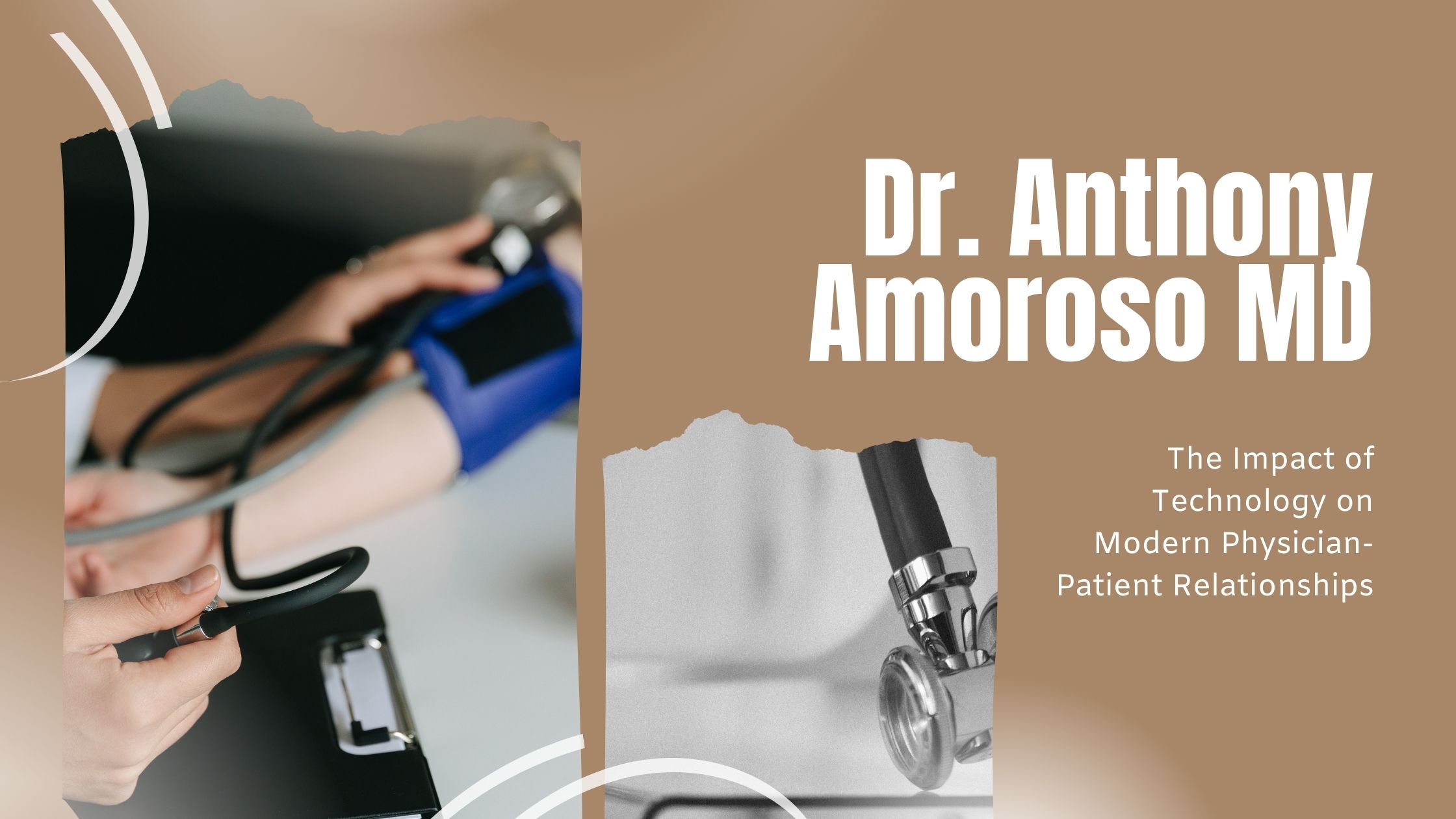Dr. Anthony Amoroso MD | The Impact of Technology on Modern Physician-Patient Relationships
The impact of technology on modern physician-patient relationships is multifaceted, bringing both advantages and challenges. Here are some key aspects to consider:
Advantages:
Access to Information:
Patient Empowerment: Technology provides patients with easy access to medical information, enabling them to be more informed about their health conditions and treatment options.
Health Apps and Wearables: Patients can use mobile apps and wearable devices to monitor their health, track symptoms, and adhere to treatment plans.
Communication and Telemedicine:
Remote Consultations: Telemedicine allows patients to consult with physicians remotely, improving access to healthcare, especially for those in rural or underserved areas.
Convenience: Virtual communication tools, like emails and messaging apps, enable convenient communication between patients and healthcare providers.
Electronic Health Records (EHRs):
Efficiency: EHRs streamline the management of patient records, reducing paperwork and improving the efficiency of healthcare delivery.
Coordination of Care: EHRs facilitate better coordination among healthcare providers, ensuring a more comprehensive and integrated approach to patient care.
Decision Support Systems:
Clinical Decision Support: Physicians can benefit from technology-assisted decision-making tools that provide relevant information and suggest treatment options based on the latest research and best practices.
Challenges:
Erosion of Personal Interaction:
Depersonalization: Overreliance on technology may lead to a depersonalization of the physician-patient relationship, with less face-to-face interaction and reduced emphasis on empathy.
Data Privacy and Security:
Confidentiality Concerns: Electronic storage and transmission of patient data raise concerns about privacy and the security of sensitive health information.
Data Breaches: The risk of data breaches and unauthorized access to health records is a significant challenge that needs careful management.
Information Overload:
Misinterpretation: Patients may misinterpret medical information obtained online, leading to misunderstandings and potentially harmful self-diagnoses or treatments.
Physician Overwhelm: Physicians may experience information overload due to the sheer volume of data available, impacting their ability to focus on essential patient care.
Digital Divide:
Access Disparities: Not all patients have equal access to technology, potentially exacerbating healthcare disparities and creating a digital divide.
Regulatory and Ethical Issues:
Telemedicine Regulations: Varying regulations across regions can pose challenges to the widespread adoption of telemedicine.
Ethical Concerns: Issues related to informed consent, the ethical use of health technology, and potential biases in algorithms need careful consideration.
Conclusion:
The impact of technology on the physician-patient relationship is transformative but complex. Balancing the advantages of improved access and efficiency with the challenges of depersonalization and data security requires careful integration of technology into the healthcare ecosystem. A patient-centered approach, ethical considerations, and ongoing adaptation to emerging technologies are crucial to ensuring that technology enhances, rather than hinders, the quality of healthcare relationships.



Comments
Post a Comment